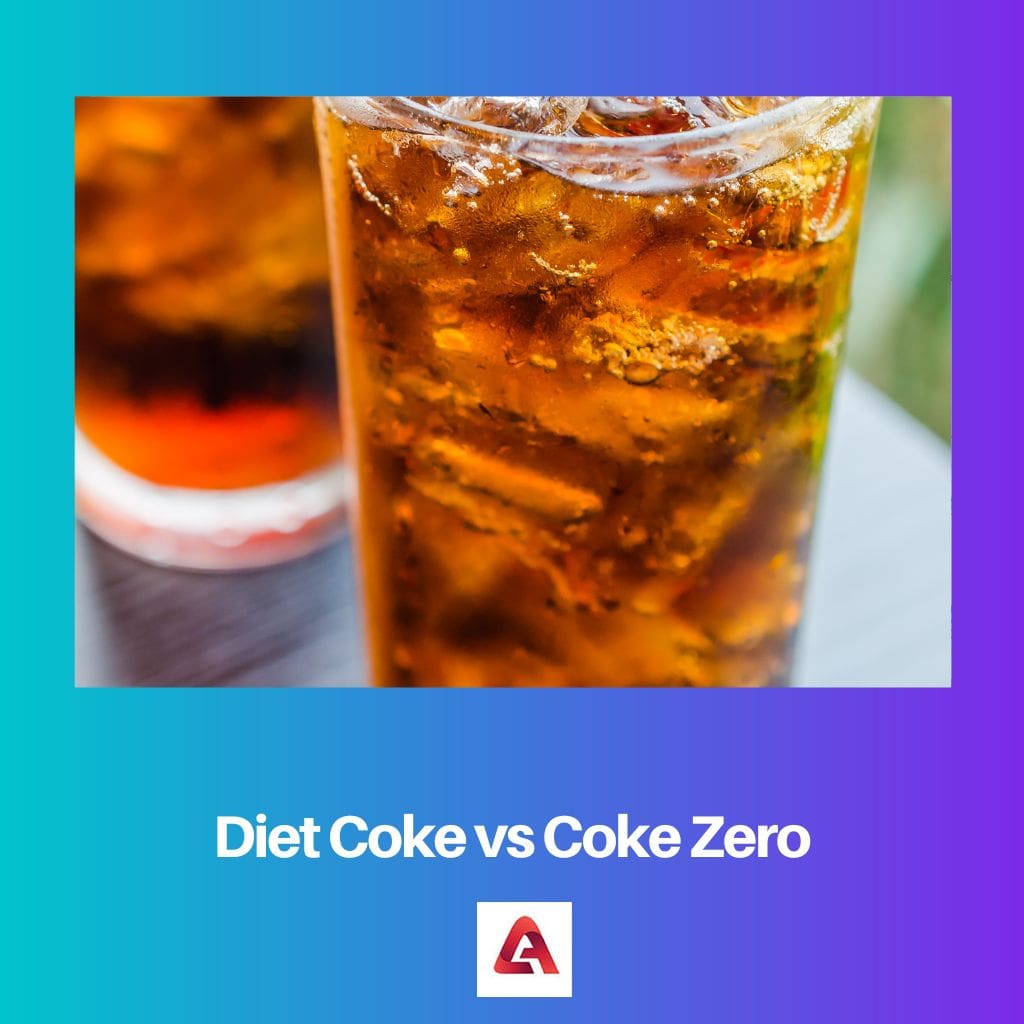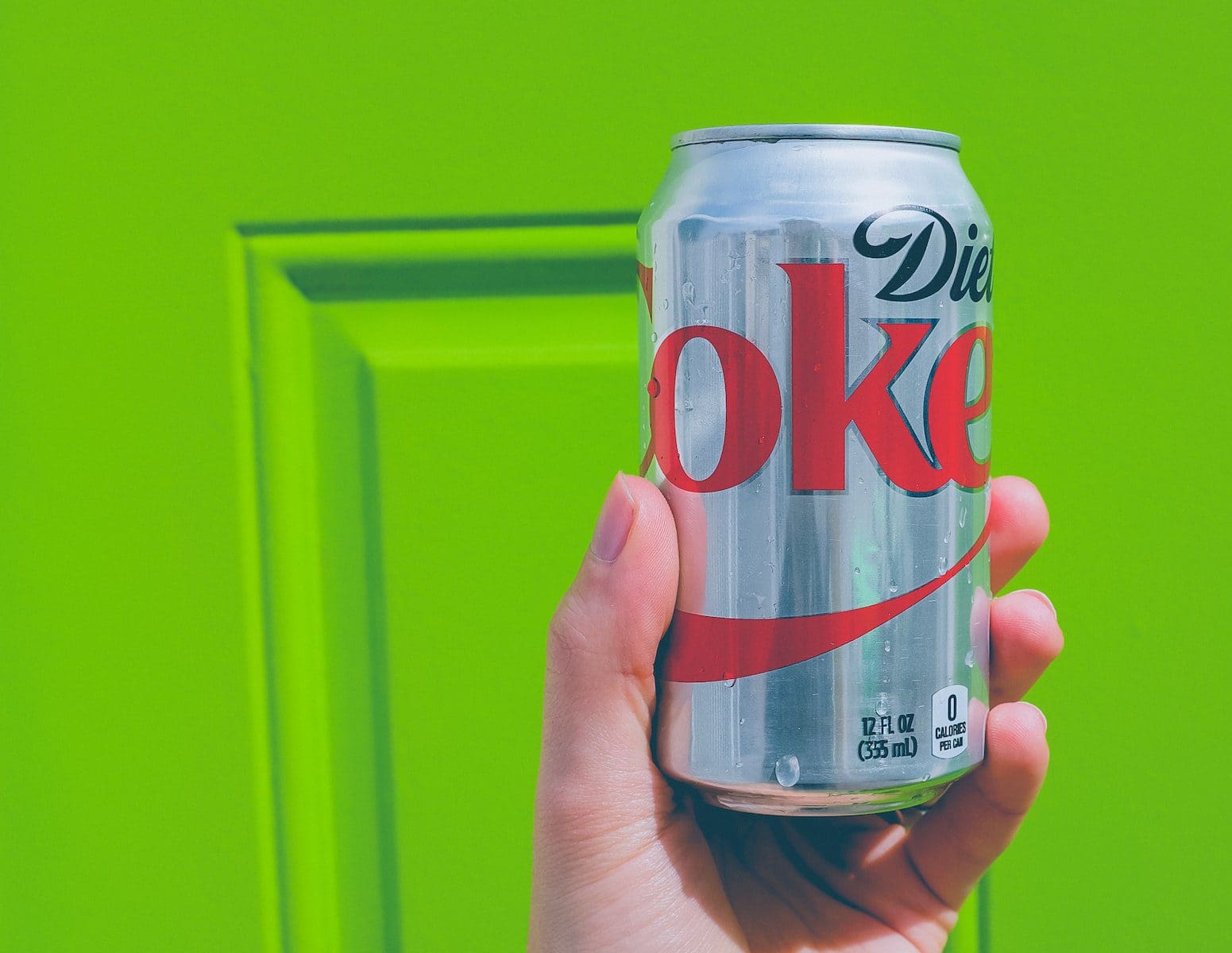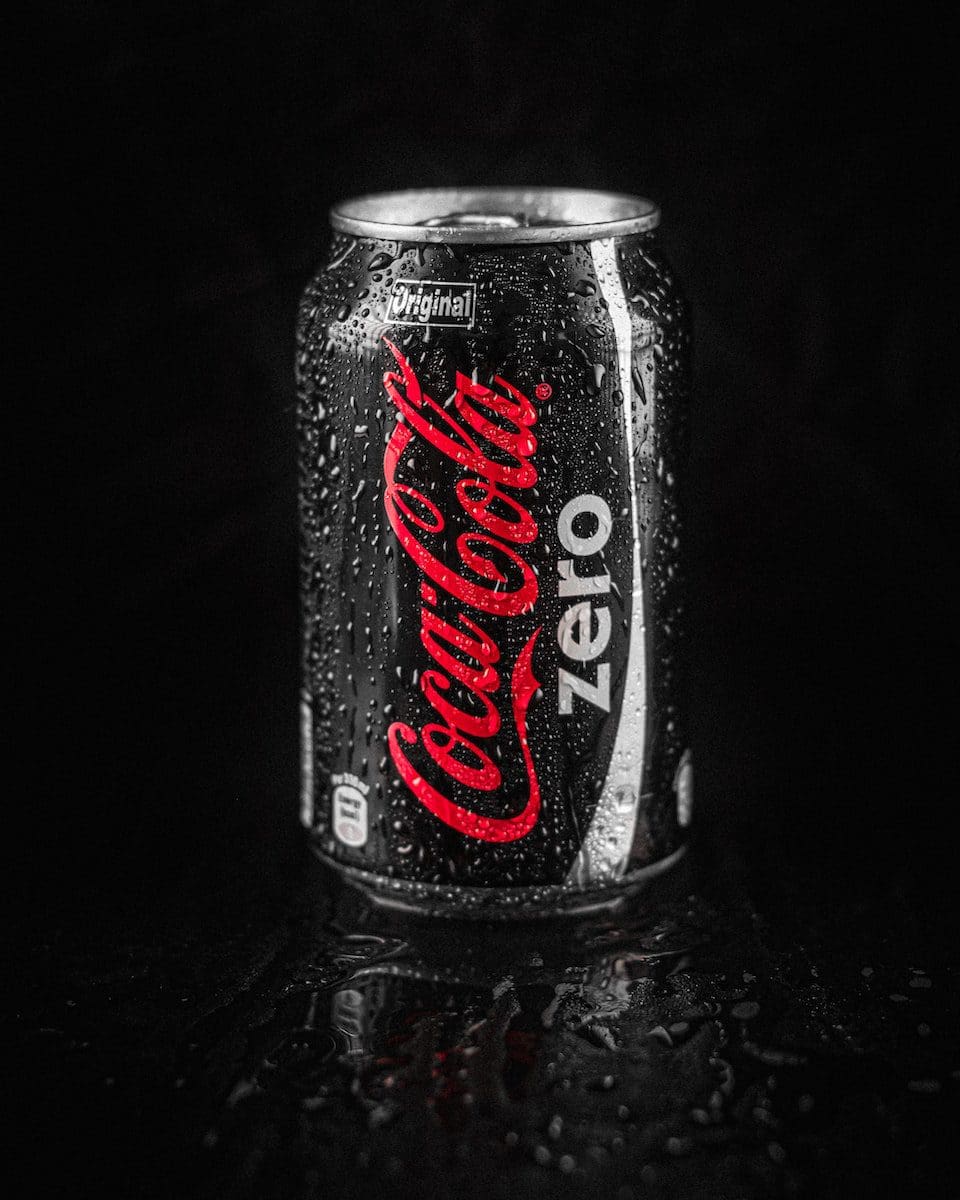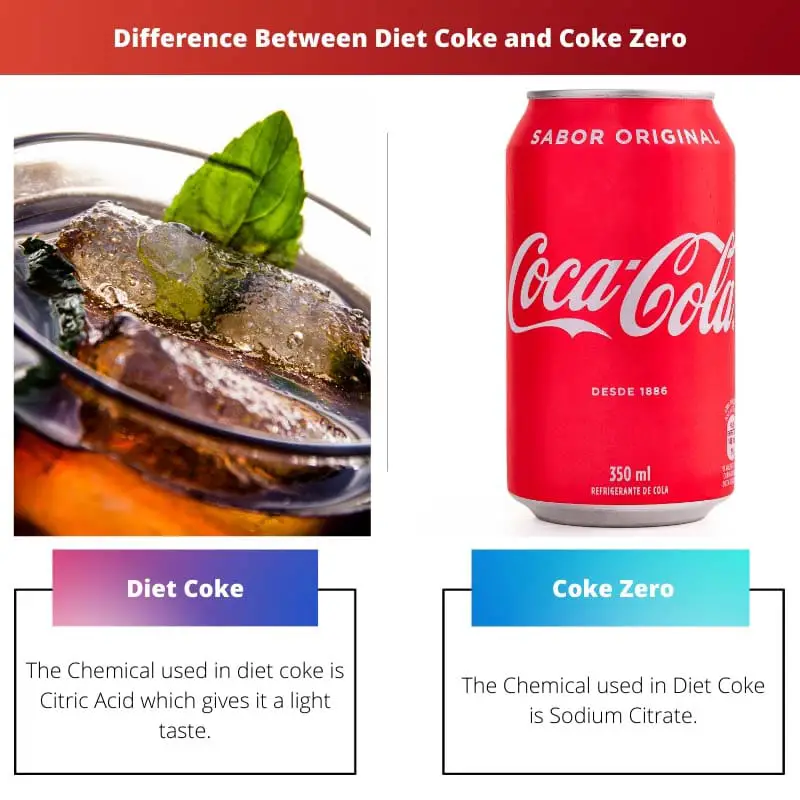Diet Coke contains artificial sweeteners like aspartame, delivering a taste closer to regular Coke but with zero calories. Coke Zero, formulated with a blend of artificial sweeteners including aspartame and acesulfame potassium, aims to mimic the taste of regular Coke without sugar, providing a calorie-free option. Both offer similar flavor profiles but differ slightly in taste due to their distinct formulations.
Key Takeaways
- Diet Coke has a distinct flavor profile, formulated to taste different from regular Coke, while Coke Zero is designed to mimic the taste of regular Coke without the calories closely.
- Diet Coke uses aspartame as its primary sweetener, while Coke Zero uses a blend of aspartame and acesulfame potassium.
- Diet Coke and Coke Zero contain zero calories and no sugar, catering to consumers seeking a low-calorie alternative to regular Coke.
Diet Coke vs Coke Zero
Diet Coke is a popular choice for reducing calorie and sugar intake. Coke Zero has a flavor profile closer to regular Coke than Diet Coke. Its main sweeteners are aspartame and acesulfame potassium, containing caffeine and phosphoric acid. It is a sugar-free, low-calorie option for people.

Comparison Table
| Feature | Diet Coke | Coke Zero |
|---|---|---|
| Ingredients | Carbonated water, caramel color, aspartame, phosphoric acid, natural flavors, caffeine, citric acid | Carbonated water, caramel color, aspartame, acesulfame potassium, phosphoric acid, natural flavors, caffeine |
| Calories | 0 | 0 |
| Sugar | 0 grams | 0 grams |
| Artificial Sweeteners | Aspartame | Aspartame and Acesulfame Potassium |
| Caffeine | 46 mg per 12 oz can | 34 mg per 12 oz can |
| Taste | Lighter, slightly citrusy | Smoother, sweeter |
| Nutritional Value | No vitamins or minerals | No vitamins or minerals |
| Health Concerns | Artificial sweeteners may be linked to health issues in high doses | Artificial sweeteners may be linked to health issues in high doses |
| Availability | Widely available | Widely available |
| Cost | Similar to regular Coke | Similar to regular Coke |
| Best for | People who prefer a lighter taste and citric acid | People who prefer a smoother, sweeter taste and less caffeine |
What is Diet Coke?
Diet Coke is a popular carbonated beverage manufactured by The Coca-Cola Company, introduced in 1982 as a sugar-free alternative to regular Coca-Cola. It is formulated to appeal to consumers seeking a low-calorie or calorie-free option while still enjoying the taste of cola.
Ingredients:
Diet Coke contains the following ingredients:
- Carbonated Water: The primary component, providing the beverage with its fizziness.
- Aspartame: An artificial sweetener used to replace sugar, providing sweetness without the added calories.
- Caramel Color: Added for color, giving Diet Coke its characteristic dark hue.
- Phosphoric Acid: Contributes to the beverage’s tartness and acts as a preservative.
- Potassium Benzoate: Another preservative used to prevent microbial growth.
- Natural Flavors: Various flavoring agents to mimic the taste of regular Coca-Cola.
- Caffeine: Provides a stimulating effect, similar to regular Coca-Cola.
- Citric Acid: Enhances flavor and acts as a preservative.
Nutritional Information:
Diet Coke is marketed as a low-calorie or calorie-free beverage. As such, it contains zero calories and zero grams of sugar per serving. However, it may contain trace amounts of other nutrients such as sodium and caffeine.
Taste and Flavor Profile:
Diet Coke is designed to closely resemble the taste of regular Coca-Cola but without the calories from sugar. The use of aspartame as a sweetener helps achieve this flavor profile, although some consumers may detect a slightly different taste compared to the original Coke due to the absence of sugar.
Packaging and Varieties:
Diet Coke is available in various packaging formats, including cans, bottles, and fountain dispensers. It is also offered in different sizes to cater to individual preferences, ranging from single-serve cans to multi-pack cases. Additionally, The Coca-Cola Company occasionally releases limited-edition flavors or variations of Diet Coke to appeal to different consumer tastes and preferences.
Health Considerations:
While Diet Coke is marketed as a healthier alternative to regular soda due to its lower calorie content, it still contains artificial sweeteners and other additives. Some studies have raised concerns about the potential health effects of long-term consumption of artificial sweeteners like aspartame, although regulatory agencies have deemed them safe for use within recommended limits. As with any beverage, moderation is key, and individuals with specific health concerns should consult with healthcare professionals regarding their consumption of Diet Coke or similar products.
| # | Preview | Product | |
|---|---|---|---|
| 1 |

| Coca-Cola, Diet Coke, 12 oz, 12 count (Pack of 24) | Check Price on Amazon |

What is Coke Zero?
Coke Zero is a sugar-free carbonated beverage produced by The Coca-Cola Company, introduced in 2005 as an alternative to regular Coca-Cola for consumers seeking a zero-calorie option with a taste similar to the original.
Ingredients:
Coke Zero contains the following ingredients:
- Carbonated Water: Provides the beverage with its characteristic fizziness.
- Caramel Color: Adds color to the drink, giving it a similar appearance to regular Coca-Cola.
- Phosphoric Acid: Contributes to the beverage’s tartness and acts as a preservative.
- Aspartame and Acesulfame Potassium: Artificial sweeteners used in combination to replace sugar, providing sweetness without the added calories.
- Potassium Benzoate: A preservative to prevent microbial growth.
- Natural Flavors: Blend of flavoring agents to mimic the taste of original Coca-Cola.
- Caffeine: Provides a stimulating effect, similar to regular Coca-Cola.
Nutritional Information:
Coke Zero is marketed as a zero-calorie beverage, meaning it contains no calories or sugar per serving. It may contain trace amounts of other nutrients such as sodium and caffeine, depending on the specific formulation and serving size.
Taste and Flavor Profile:
Coke Zero is formulated to closely replicate the taste of regular Coca-Cola while providing a zero-calorie option. The use of a blend of aspartame and acesulfame potassium as sweeteners helps achieve a flavor profile that closely resembles the original Coke, though some consumers may detect slight differences in taste compared to the sugared version.
Packaging and Varieties:
Similar to Diet Coke, Coke Zero is available in various packaging formats, including cans, bottles, and fountain dispensers. It is offered in different sizes to accommodate individual preferences, ranging from single-serve cans to larger multi-pack options. Additionally, The Coca-Cola Company periodically releases limited-edition flavors or variations of Coke Zero to cater to diverse consumer tastes and preferences.
Health Considerations:
Coke Zero is marketed as a healthier alternative to regular soda due to its lack of calories and sugar. However, it still contains artificial sweeteners, which have raised some concerns regarding potential health effects with long-term consumption. Regulatory agencies have deemed these sweeteners safe for use within recommended limits, but individuals with specific health concerns should consult healthcare professionals regarding their consumption of Coke Zero or similar products. As with any beverage, moderation is key to maintaining a balanced diet and lifestyle.
| # | Preview | Product | |
|---|---|---|---|
| 1 |

| Coke Zero Sugar Cola Soda, 12 oz, 12 Pack (Package May Vary) | Check Price on Amazon |
| 2 |

| Coca-Cola Coke Zero Sugar Diet Soda Soft Drink, 7.5 fl oz, 10 Pack | Check Price on Amazon |

Main Differences Between Diet Coke and Coke Zero
- Sweeteners:
- Diet Coke: Primarily sweetened with aspartame, providing a taste closer to regular Coca-Cola.
- Coke Zero: Formulated with a blend of aspartame and acesulfame potassium, aiming to mimic the taste of regular Coke without sugar.
- Flavor Profile:
- Diet Coke: Designed to closely resemble the taste of original Coca-Cola but may have a slightly different flavor due to the use of aspartame as the primary sweetener.
- Coke Zero: Also formulated to replicate the taste of regular Coca-Cola, with a flavor profile achieved through a combination of aspartame and acesulfame potassium, resulting in a taste that some find closer to the original.
- Packaging and Marketing:
- Diet Coke: Often marketed towards individuals seeking a low-calorie or calorie-free beverage option, with packaging and advertising emphasizing its zero-calorie content.
- Coke Zero: Marketed similarly to Diet Coke as a zero-calorie alternative to regular Coke, with packaging and promotions highlighting its taste similarity to the sugared version.


Diet Coke seems to be a better fit for those who prefer a lighter, citrusy taste, whereas Coke Zero offers a smoother, sweeter profile. It’s all about personal preference!
Absolutely, Lkelly. There’s no one-size-fits-all answer when it comes to taste preferences, and both options cater to different flavor profiles.
The comparison table provided is very helpful in understanding the differences between Diet Coke and Coke Zero. It’s great to have detailed information to make an informed choice.
I appreciate the thorough breakdown of ingredients and nutritional value. It’s essential for consumers to know what goes into the products they consume.
I couldn’t agree more, Roxanne. Having clear nutritional details helps consumers make healthier decisions when it comes to their beverage choices.
I prefer Coke Zero over Diet Coke because it closely mimics the taste of regular Coke without the calories. It’s a great option for those looking to reduce sugar and calorie intake.
I agree, Carole. Coke Zero is a game-changer for those of us who still want the familiar Coke taste without the guilt.
The concerns about artificial sweeteners are valid, and consumers need to be aware of the potential health effects. More research and transparency from manufacturers are essential.
Absolutely, Robertson. It’s crucial for companies to prioritize consumer health and safety by providing clear information about the products they offer.
A great comparison between Diet Coke and Coke Zero. It’s important for consumers to understand the differences in taste, ingredients, and nutritional value when choosing between these options.
I appreciate the comprehensive breakdown of Diet Coke and Coke Zero. It’s crucial for consumers to have access to this detailed information to make informed choices.
I couldn’t agree more, Mason. Transparency about the contents of these beverages empowers consumers to make healthier decisions.
The detailed breakdown of the ingredients and nutritional value is incredibly informative. It’s essential to consider these factors when choosing between Diet Coke and Coke Zero.
I appreciate how the article highlights the differences in taste and nutritional content between the two options. It’s valuable information for consumers.
I couldn’t agree more, Reynolds. Understanding the composition of these beverages helps consumers make more conscious decisions about what they consume.
The comparison table effectively highlights the differences between Diet Coke and Coke Zero, allowing consumers to make informed decisions based on their preferences.
I couldn’t agree more, Wward. Having access to clear and detailed comparisons makes it easier for individuals to choose the beverages that best suit their needs.
Transparency about the ingredients and nutritional content of these beverages is key, and the article provides valuable insights for consumers.
I find it concerning that both Diet Coke and Coke Zero contain artificial sweeteners that have been linked to health issues. I think more research on their long-term effects is necessary.
I share your concerns, Davis. It’s important to stay informed about the potential health risks associated with these artificial sweeteners.
I believe the health concerns surrounding artificial sweeteners are valid, and it’s crucial for consumers to be aware of what they’re consuming.
The health concerns related to artificial sweeteners cannot be overlooked, and it’s crucial for individuals to make informed choices about their beverage consumption based on this knowledge.
I completely agree, Tara. Educating oneself about the potential risks of artificial sweeteners is a critical step in making healthier beverage choices.